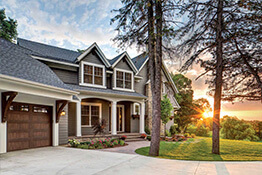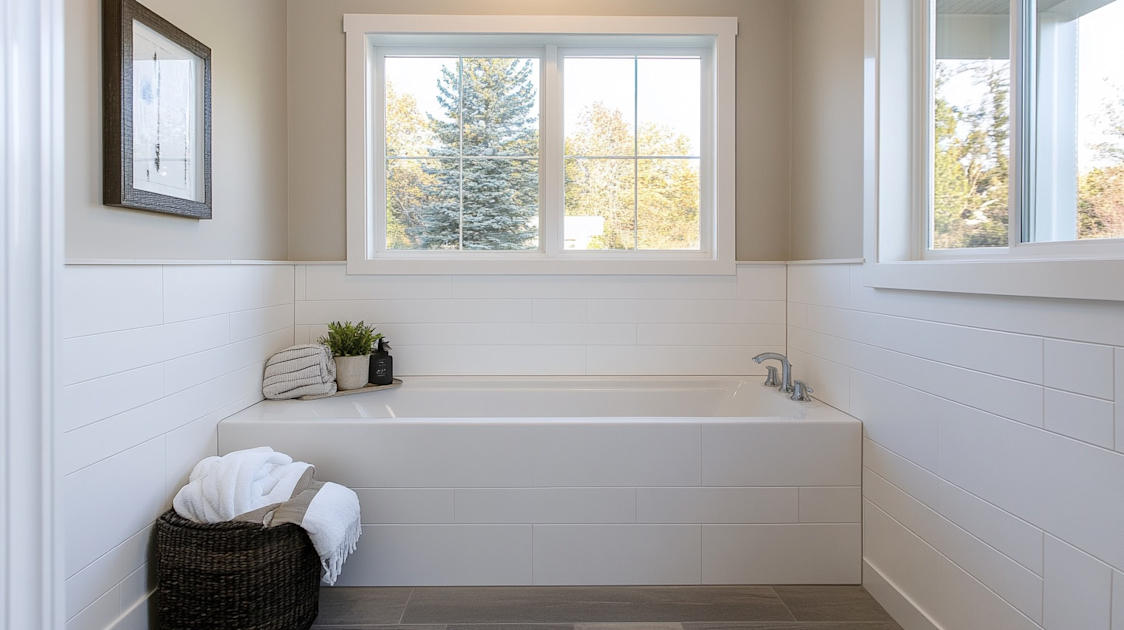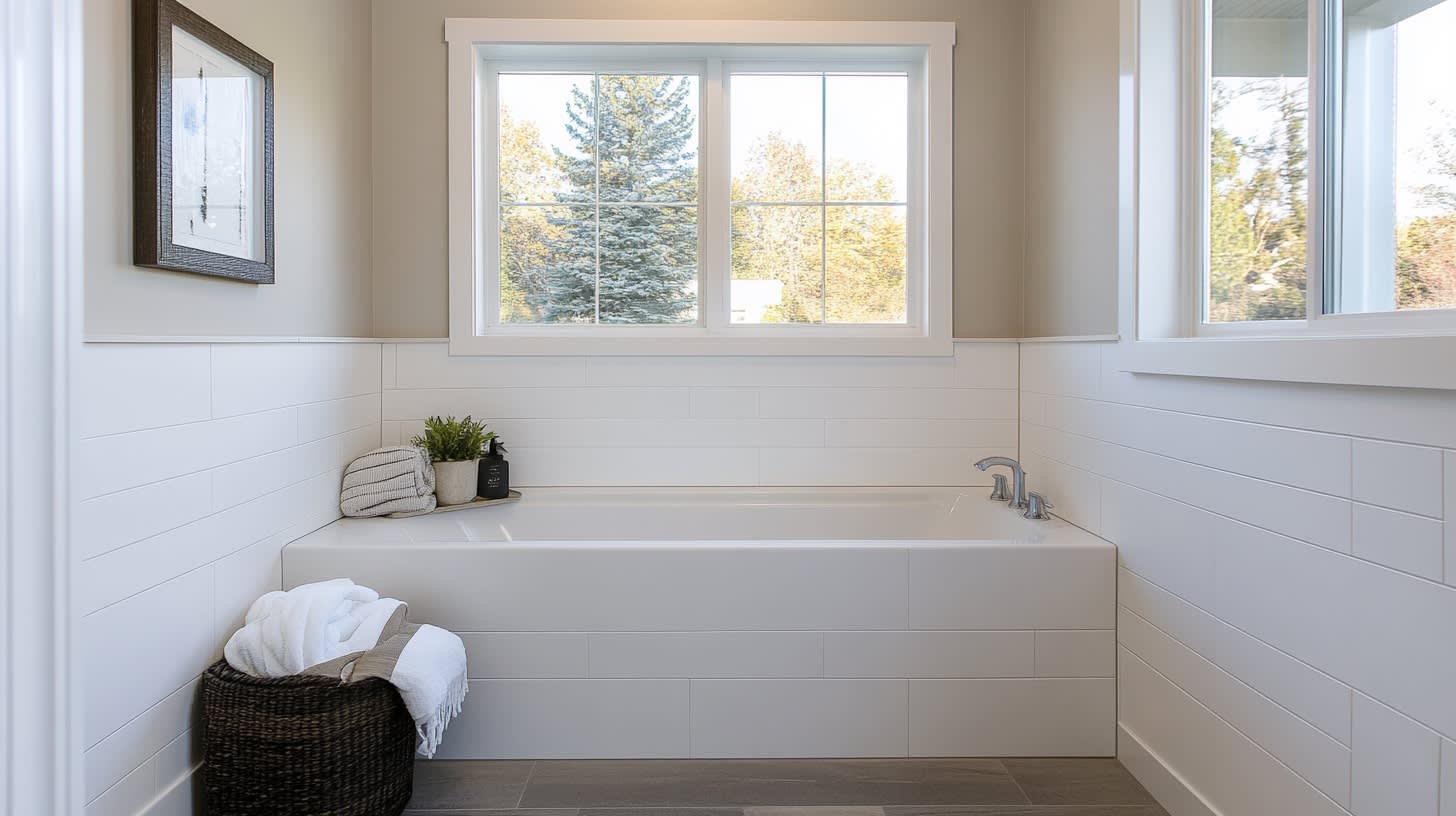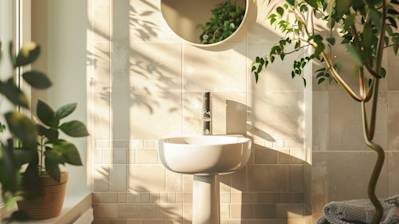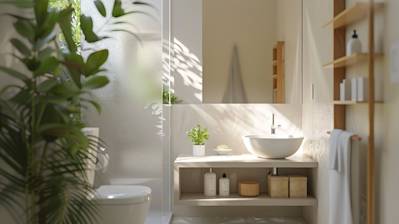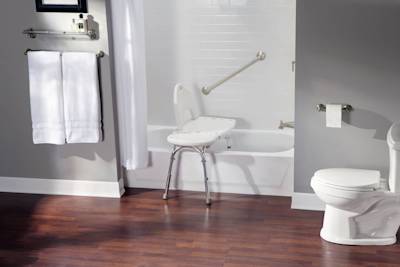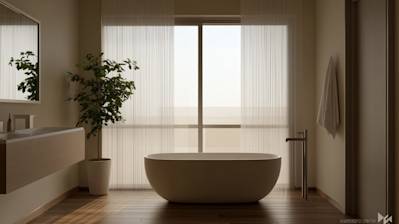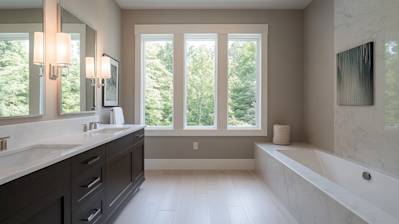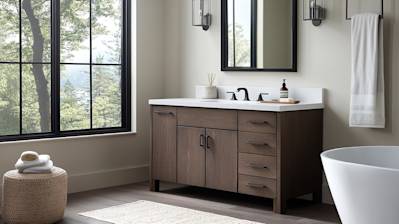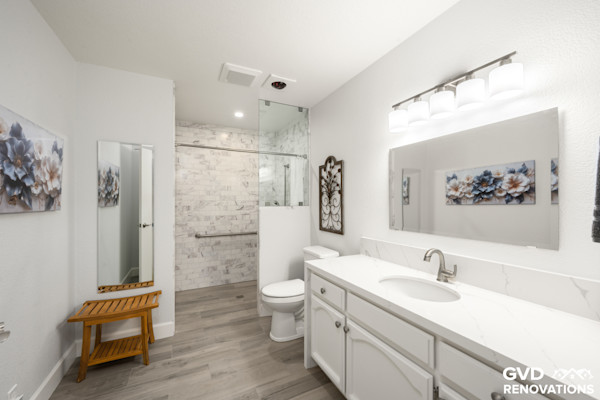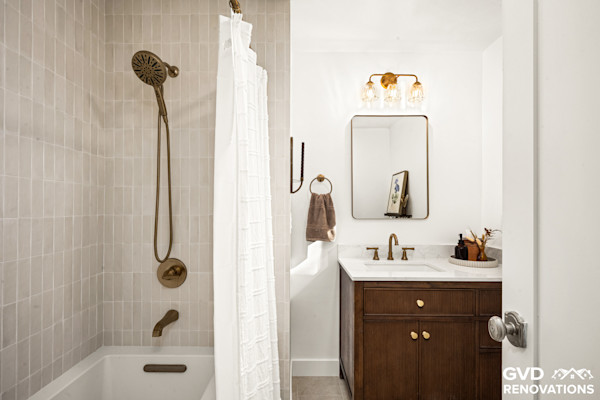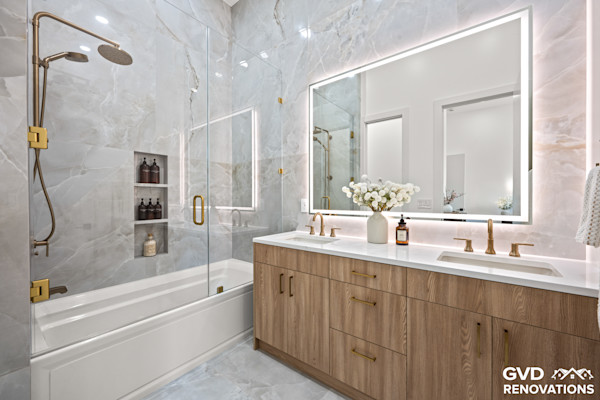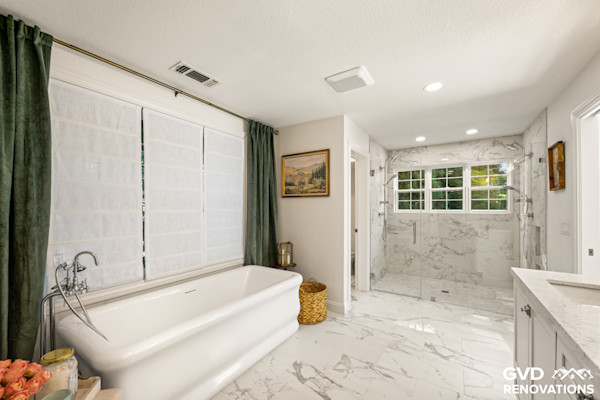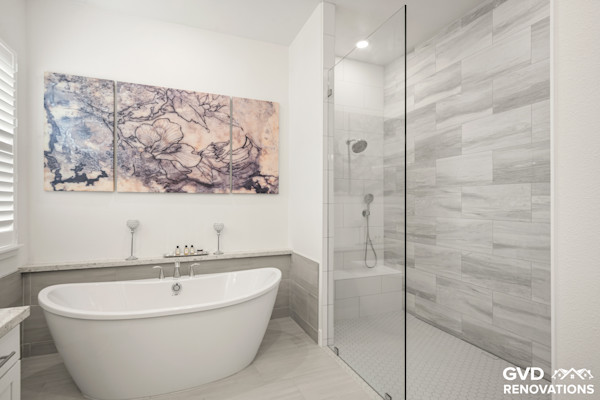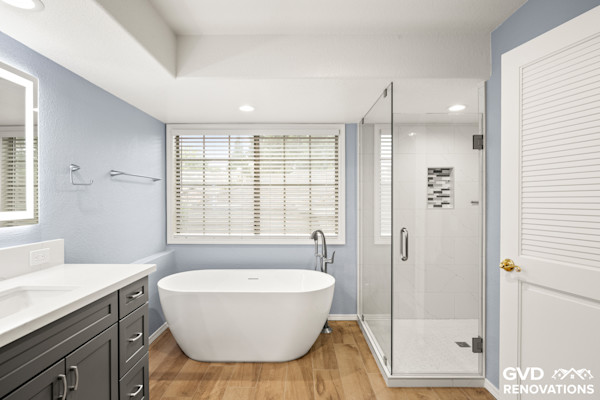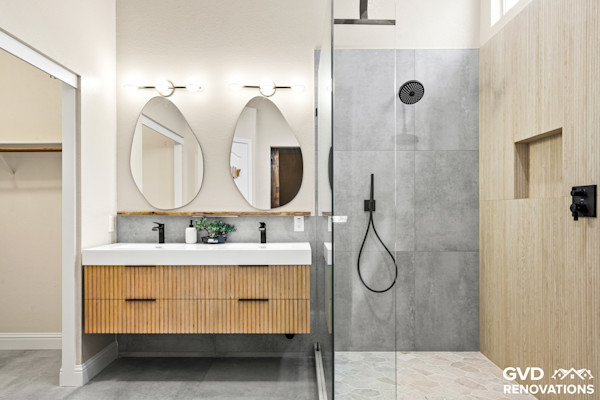Bathroom conversions are one of the most popular choices for homeowners keen on renovating and adding value to their properties. The process might involve converting a half bath into a full bath, transforming a full bath into a luxurious master suite, or turning an unused space into an additional bathroom. With a comprehensive understanding and strategic approach, bathroom conversions can turn out to be incredibly rewarding projects.
Importance of Bathroom Conversions
The importance of bathroom conversions cannot be overstated, largely because of the unique range of benefits they bring, from elevating your home's comfort and luxury to significantly increasing its value.
- Boosting property value: Nicely done bathroom conversions can significantly boost your home's market value.
- Providing convenience: Having an extra bathroom, especially in a large family, can reduce morning rush issues.
- Adding luxury: Bathroom conversions can turn a typical bathroom into a spa-like haven, increasing the relaxation quotient.
Main Types of Bathroom Conversions
Bathroom conversions can take many shapes and forms based on your needs, budget, and the existing layout. Here are some popular types:
- Half bath to Full bath conversion: These conversions involve adding a bathing area to your existing half bath.
- Bathroom suite conversions: Usually involves converting a standard bathroom into a luxurious suite with large tubs and showers, dual sinks, and sometimes, a small lounge area.
- Converting unused spaces: You can use your creative instincts to convert an underused closet, the under stairs area, or a part of a big room into a functional bathroom.
Deciding on the type of conversion depends largely on your requirements, budget, and space availability.
Vital Tips for a Successful Bathroom Conversion
Success in bathroom conversions extensively relies on a perfect combination of careful planning, selection of the right fixtures, and the right execution. Here are some important points to keep in mind:
Planning & Assessing Needs
Bathroom conversions require careful planning considering your future needs.
A well-planned bathroom conversion should primarily start with a well-laid plan. You need to evaluate the available space, judge your future requirements, plan your budget, and decide on the primary function of your new bathroom.
Selection of Essential Fixtures
Right fixtures define the capability and usability of your converted bathroom.
You need to choose fixtures like sinks, showers, tubs, and toilets carefully. Your selection must complement the overall aesthetics of your bathroom while serving their functional needs effectively.
Hiring a Professional
A professional can significantly simplify your tasks and ensure efficient work.
While DIY might seem appealing for some minor changes, for extensive bathroom conversions, professional assistance is recommended. They can provide the required know-how, skill, manpower, and efficiency, ensuring your bathroom conversion project is completed with perfection.
Bathroom Conversion Cost
Bathroom conversion costs can be variable based on the complexity of the conversion, size of the bathroom, the quality of fixtures chosen, and labor costs in your area. However, according to HomeAdvisor, a basic cost to add a new bathroom to your home can range from $3,000 to $25,000.
Frequently Asked Questions about Bathroom Conversions
How long does a bathroom conversion take?
The duration of a bathroom conversion greatly varies depending on the scope of the project. Simple conversions may take a few days, while expansive remodels involving plumbing and structural changes can take several weeks. Always discuss timelines with your chosen contractor to prevent any misunderstanding.
How is the cost for a bathroom conversion determined?
The cost of a bathroom conversion is influenced by various factors. These can range from the selected materials, the bathroom size, whether plumbing needs to be moved, and the labor costs in your area. On average, bathroom conversions can cost between a few thousand to tens of thousands of dollars.
Do I need a permit for my bathroom conversion?
This depends on your local jurisdiction and the scope of your bathroom conversion. Smaller projects typically do not require a permit. However, larger tasks like moving plumbing fixtures or doing electrical work often need a permit. It's best to check with local regulations or your contractor to ensure compliance.
How can I prepare my home for a bathroom conversion?
Preparing your home for a bathroom conversion can help the process go more smoothly. Remove all personal items from the bathroom. You might want to set-up a temporary bathing area if it's your only bathroom being converted. Also, prepare for dust and noise, particularly during demolition and construction.
Can I do the bathroom conversion myself?
While DIY projects can be satisfying, a bathroom conversion often involves complex tasks like plumbing, electrical work, and tiling that usually need professional knowledge. Some aspects, such as painting or installing hardware, can be done by yourself to save costs. Remember, quality work can increase your property value and prevent future repairs, so choose your DIY projects carefully.
How should I choose a contractor for my bathroom conversion?
Choose a bathroom conversion contractor based on their experience, specialization, reputation, and your comfort level with them. Ensure they are licensed and insured, and ask to see examples of their past work. Considering asking for testimonials from past clients, or checking online reviews.
What are some popular trends in bathroom conversions?
Popular bathroom conversion trends include installing walk-in showers, heated floors, high-efficiency fixtures for water conservation, and floating vanities. Luxury features, like soaker tubs and rain showers, are also trending. However, your bathroom conversion should primarily focus on your personal preferences and lifestyle needs.
What if my bathroom is small? Can it still be converted?
Absolutely! While space might be a constraint, there are numerous innovative designs to make small bathrooms functional and beautiful. You can consider options like corner sinks, mini bathtubs, or wall-mounted toilets for your small bathroom conversion.
Pros of Bathroom Conversions
Increased Home Value
Enhanced Esthetics
Bathroom conversions can significantly enhance the esthetics of your home. Changing the design, improving the fixtures, and installing new and modern amenities can make your bathroom more appealing. This not only improves your living experience but also adds to the attractiveness of your home, hence increasing its market value.
Market Competitiveness
With a renovated bathroom, your home can potentially have a bigger edge in the housing market. Modern and well-designed bathrooms are sought after by homebuyers, making your house a hot commodity should you decide to sell.
Improved Space Utilization
Better Layout
Converting your old bathroom can lead to a more efficient layout. This is especially beneficial if you have a small bathroom space. Professional bathroom designers can maximize every inch of space, ensuring that you have enough room to move around comfortably. This can involve repositioning fixtures, installing corner sinks, or adding wall-mounted cabinets.
Increased Storage
Bathroom conversions can also help increase storage space. Adequate storage is essential in keeping your bathroom organized. A clutter-free bathroom can make your daily routines more manageable and enjoyable.
Enhanced Water Efficiency
Eco-friendly Fixtures
Modern bathroom fixtures are designed to promote water efficiency. Converting your old bathroom can allow you to install eco-friendly faucets, showers, and toilets that can minimize water usage. This helps reduce overall water consumption in your household and contributes to environmental conservation.
Lower Water Bills
Using water-efficient fixtures doesn’t only help conserve water, they can significantly decrease water bills too. Over time, the cost you spend for the conversion may be recovered through the savings from your reduced water consumption.
Cons of Bathroom Conversions
High Initial Cost
Labor and Material Costs
The most apparent downside to a bathroom conversion is the potentially high initial cost. Depending on the scale of the project, costs can quickly add up. Labor costs, costs for new fixtures and materials can be quite steep.
Unexpected Expenses
During the remodeling process, there might be unforeseen issues that may crop up such as plumbing issues, electric wiring problems or hidden water damages. These can lead to unexpected expenses which can spike up your budget.
Time-Consuming
Construction Timeline
Bathroom conversions can be time-consuming. Depending on the complexity of your project and the efficiency of your contractor, it can take weeks or even months to complete. During this period, household routines might be disrupted.
Planning Stage
Even before the actual construction begins, the planning stage in itself can be a lengthy process. It involves identifying the needs and wants for your new bathroom, finding the right contractor, picking out materials and fixtures, budgeting, and more.
Potential Overcapitalization
Over-improvement
There's always a risk of overcapitalization in home improvement projects. When the cost of improvements exceeds the increase in property value, it results in overcapitalization. Spending too much on top-rated Sacramento bathroom renovation might not yield the expected increase in your property value, especially if your house is in a lower-valued neighborhood.
Personalized Styles
Over-personalization is another potential pitfall. While having a one-of-a-kind bathroom might seem appealing, potential homebuyers might not share your preferences. A too-unique or overly personalized bathroom can potentially dissuade some homebuyers, making it difficult for you to recoup your remodeling expenses.
Summary
Bathroom conversions can really introduce a breath of fresh air into an old and tired setup. They allow you to maximize your space and make the most of your money by focusing on smart renovations. With the right professional help, these conversions can add not just functionality but also a whole lot of style to your space, eventually improving your home's overall resale value. Bathroom conversions are a highly practical and value-adding home improvement project.
Often, bathroom conversions revolve around changing the layout, updating fixtures, or even installing new features like a standalone bathtub or a rain shower. This is the perfect opportunity to bring in your personal touch and express your taste. Whether it’s designing a spa-like retreat or a bright and modern space, bathroom conversions let you play around with numerous design possibilities.
Furthermore, bathroom conversions can transform this essential part of your house into a more energy-efficient area. By incorporating water-saving faucets, energy-efficient lighting, and heating systems, you are not just creating an aesthetically pleasing and updated bathroom but also actively participating in conserving environmental resources. So next time you plan a home renovation project, definitely put bathroom conversions on the top of your list!
About GVD Renovations & Remodeling
GVD Renovations & Remodeling is a homegrown, locally-operated company based in Roseville, CA, passionate about bringing your dream home to life. We pride ourselves on our commitment to excellent craftsmanship and impeccable customer service. With years of experience under our tool belt, we specialize in home renovations, particularly kitchen and bathroom remodels, siding installation, and window replacements, just to mention a few. Our team of skilled and experienced professionals works tirelessly to ensure that each project we undertake not only enhances your home's aesthetic but also its long-term value. At GVD Renovations & Remodeling, we believe a beautiful home is more than just a roof over your head, it's where life happens.
This article is for general information only and not professional advice. Always consult a licensed contractor before making project decisions. Product details, specifications, or warranties may have changed since publication. Brand and product mentions reflect opinion, not endorsements or guarantees.
Tags: Remodeling, Home improvement, Plumbing,
